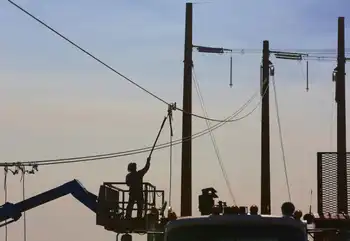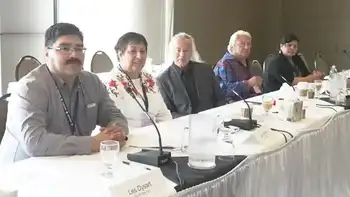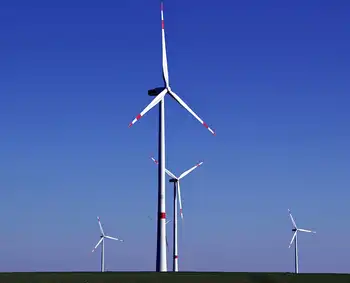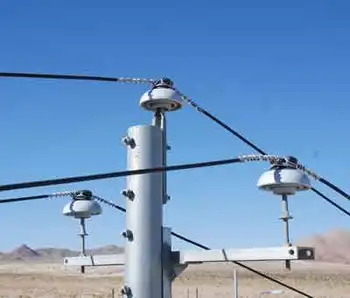Nuclear plant raises concerns
By Knight Ridder Tribune
Electrical Testing & Commissioning of Power Systems
Our customized live online or in‑person group training can be delivered to your staff at your location.

- Live Online
- 12 hours Instructor-led
- Group Training Available
The Levy County plant will be built next to a state preserve that provides a home to endangered animals like the red-cockaded woodpecker, the report said. It will draw as much as 120-million gallons of water a day from the Cross Florida Barge Canal, evaporate a third of it for cooling, and pump the warm, salty remainder into waters near the Big Bend Aquatic Seagrasses Preserve. It will be built on a 3,100-acre property that is 39 percent wetlands. The state report, responding to Levy County's plans to change its growth-management plan, provides an early outline of the plant's potential environmental impacts.
Levy County has yet to adopt the changes, and will work with the state and the utility to address the state's concerns, said Levy County Commission Chairman Sam Yearty. "I feel like it's a good plant," Yearty continued. "I think it'll be good for the county. It's just a process we have to go through."
Progress Energy spokesman Buddy Eller said that it's still early in a long and complex approval process. A back-and-forth with regulators is "to be expected," Eller said. He said he's confident that the utility will win approval. Environmentalists worry that the new plant will irreparably harm one of the last nearly pristine areas of Florida.
"There are significant environmental issues with this site that have been glossed over at this point, and there needs to be a lot more conversation about it," said Joe Murphy of the Gulf Restoration Network. Murphy worried that Progress will hack through forest preserves to make way for transmission lines, and permanently damage delicate fisheries. "Is the Nature Coast going to become Florida's 'Energy Sacrifice Coast?'" he asked.
The early volley of environmental concerns came from the Florida Department of Community Affairs in a Sept. 28 response to Levy County's drafted changes to its growth plan.
The department included comments from the Department of Environmental Protection the Suwannee and Southwest Florida Water Management districts and the Withlacoochee Regional Planning Council. The environmental protection department wanted assurances that the plant's water-cooling system will not damage the ecosystem near the Withlacoochee River or harm sea grass.
The department was also concerned about the plant's potential impact on the Goethe State Forest. The 42,000-acre preserve borders on its northern edge. It was bought by the Florida Forever program for a total of $64-million, the program's second-largest acquisition.
The plant site, formerly timberland, has been heavily forested and used by hunters. It doesn't provide a pristine habitat to begin with, Eller said. Progress officials said its design will mitigate any damage to wildlife: The plant will be built on 300 acres in the middle of the 3,100-acre tract, with buffers extending nearly a mile in every direction. "Low profile" cooling towers won't interfere with migratory birds. And cooling water will be pumped 5 miles into the gulf. Progress plans to build up to two nuclear reactors, and estimated in late 2006 that one reactor could cost up to $3.5-billion.
Many in Levy County favor the plant because it will provide jobs in an economically depressed corner of the state and boost the county's tax rolls. By Progress Energy's estimates, the Levy plant will create 3,000 construction jobs and 500 permanent jobs, provide a direct and indirect economic impact of $139.9-million per year, and boost real estate values. It will pay tens of millions of dollars in taxes.
The mayor of nearby Inglis, Carolyn Risher, is already looking forward to paving some of the town's roads with the tax windfall. In Yankeetown, speculation is that Progress will help them build a much-needed sewage treatment plant.
Danny Roderick, Progress Energy's vice president of nuclear projects and construction, said the utility has no plans to build a sewage treatment plant or pay for any specific local projects. County officials will divvy up the tax revenue as they see fit.
Murphy, who lives in Hernando County about an hour south of the plant, said too many people see the plant as a boon. In a remote and thinly populated rural county desperate for jobs and tax money, Progress Energy's plans might not get the scrutiny it deserves, he said.
Levy County Commissioner Nancy Bell, a self-described "'60s flower child", said she still has some reservations about nuclear power, particularly the lack of any clear plan to deal with the industry's radioactive waste. But the risks of global warming outweigh her reservations about nuclear. "I think there's a lot of us that feel that way.











